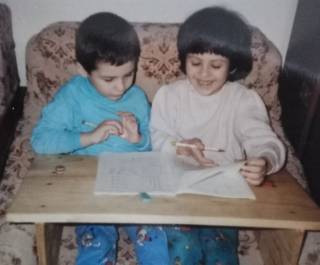 My doctoral research at Tampere University examines the reproduction of whiteness in Nordic integration policy/curricula discourses, knowledge production related to minoritized people, and my lived experiences and reflections as a migrant from Romania, with the aim of envisioning transformative shifts and opening for plural voices and approaches in Nordic integration politics and minority research.
My doctoral research at Tampere University examines the reproduction of whiteness in Nordic integration policy/curricula discourses, knowledge production related to minoritized people, and my lived experiences and reflections as a migrant from Romania, with the aim of envisioning transformative shifts and opening for plural voices and approaches in Nordic integration politics and minority research.
My mother gave birth to me in November 1989, three weeks before the communist regime collapsed in Romania. It was a metaphoric end of history, a collective dive into ideological snaps and changes, the uncertainty of what was to come. It was also the beginning of a new life, full of hopes and fears. This new life was discursively, economically, and geopolitically framed as ‘transition’ from socialism to capitalism. In my mother’s eyes, this new life was embodied in her daughter, and later also in her son, born one year and a half later.
The historical rupture that took place during 1989 in many postsocialist countries constitutes a metaphorical border that cuts across those who came into the world during that rupture, including myself. We were later socialised and educated in line with that rupture, within a ‘transition’ discursive framework, in a system that devalued our histories and our parents’ socialist pasts. We, members of the newer generations, often responded to these devaluations by ridiculing our socialist histories and by internalising inferiority complexes that manifest through taking for granted neoliberal capitalist modernity as the only valid modernity to which we must adapt. By reflecting on memories with/lived-by members of my family who grew up during socialism, I can reconcile with a socialist past that I have only heard/read about and thus regain a sense of personal and mutual coherence.
